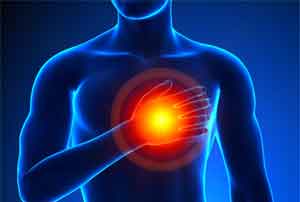- Home
- Editorial
- News
- Practice Guidelines
- Anesthesiology Guidelines
- Cancer Guidelines
- Cardiac Sciences Guidelines
- Critical Care Guidelines
- Dentistry Guidelines
- Dermatology Guidelines
- Diabetes and Endo Guidelines
- Diagnostics Guidelines
- ENT Guidelines
- Featured Practice Guidelines
- Gastroenterology Guidelines
- Geriatrics Guidelines
- Medicine Guidelines
- Nephrology Guidelines
- Neurosciences Guidelines
- Obs and Gynae Guidelines
- Ophthalmology Guidelines
- Orthopaedics Guidelines
- Paediatrics Guidelines
- Psychiatry Guidelines
- Pulmonology Guidelines
- Radiology Guidelines
- Surgery Guidelines
- Urology Guidelines
Adding Vasopressin to catecholamine lowers AF risk in Shock

In patients with distributive shock, the addition of vasopressin to catecholamine vasopressors compared with catecholamines alone was associated with a lower risk of atrial fibrillation, according to a new meta-analysis and systematic review published in the JAMA.
The study was conducted by Emilie Belley-Côté, MD, McMaster University, Hamilton, Ontario, Canada, and colleagues, to determine whether treatment with vasopressin + catecholamine vasopressors compared with catecholamine vasopressors alone was associated with reductions in the risk of adverse events.
Vasopressin is an alternative to catecholamine vasopressors for patients with distributive shock (a condition due to excessive vasodilation, most frequently from severe infection). Blood pressure support with a noncatecholamine vasopressor may reduce stimulation of adrenergic receptors and decrease myocardial oxygen demand. Atrial fibrillation is common with catecholamines and is associated with adverse events, including mortality and increased length of stay (LOS).
Using the GRADE system, investigators analyzed data from 3088 patients (mean age, 61.1 years; 45.3% women) in 23 studies. Of these, 22 studies, including the 2016 VANISH trial, included patients with septic shock; 15 trials were not blinded, and 5 were published only as abstracts.
Overall, 13 trials studied vasopressin, 9 terlipressin, 1 selepressin, and 1 pituitrin. One three-group study compared vasopressin vs terlipressin vs norepinephrine alone.
Key findings:
- In absolute terms, 68 fewer people per 1000 patients (95% CI, 36 - 98) experienced atrial fibrillation when vasopressin is added to catecholamines.
- The addition of vasopressin was associated with a 33% reduction in the risk for atrial fibrillation compared with catecholamines alone (risk ratio [RR], 0.77; 95% CI, 0.67 - 0.88).
- The crude rate of atrial fibrillation was 73% in the post–cardiac surgery population and 13% in the sepsis studies.
- The relative effect of vasopressin was similar in sensitivity analyses of patients after cardiac surgery (RR, 0.77; 95% CI, 0.67 - 0.88) and those with sepsis (RR, 0.76; 95% CI, 0.55 - 1.05).
The finding was driven by the 2017 VANCS study, which carried 74.8% of the weight and was one of two trials in the analysis to evaluate vasoplegic shock after cardiac surgery.
The meta-analysis is the first on this topic to examine atrial fibrillation as an outcome and one of few reviews to compare vasopressin plus catecholamines against the current standard, catecholamines alone, the authors note.
In this systematic review and meta-analysis, the addition of vasopressin to catecholamine vasopressors compared with catecholamines alone was associated with a lower risk of atrial fibrillation. Findings for secondary outcomes varied.
For more information click on the link: 10.1001/jama.2018.4528

Disclaimer: This site is primarily intended for healthcare professionals. Any content/information on this website does not replace the advice of medical and/or health professionals and should not be construed as medical/diagnostic advice/endorsement or prescription. Use of this site is subject to our terms of use, privacy policy, advertisement policy. © 2020 Minerva Medical Treatment Pvt Ltd